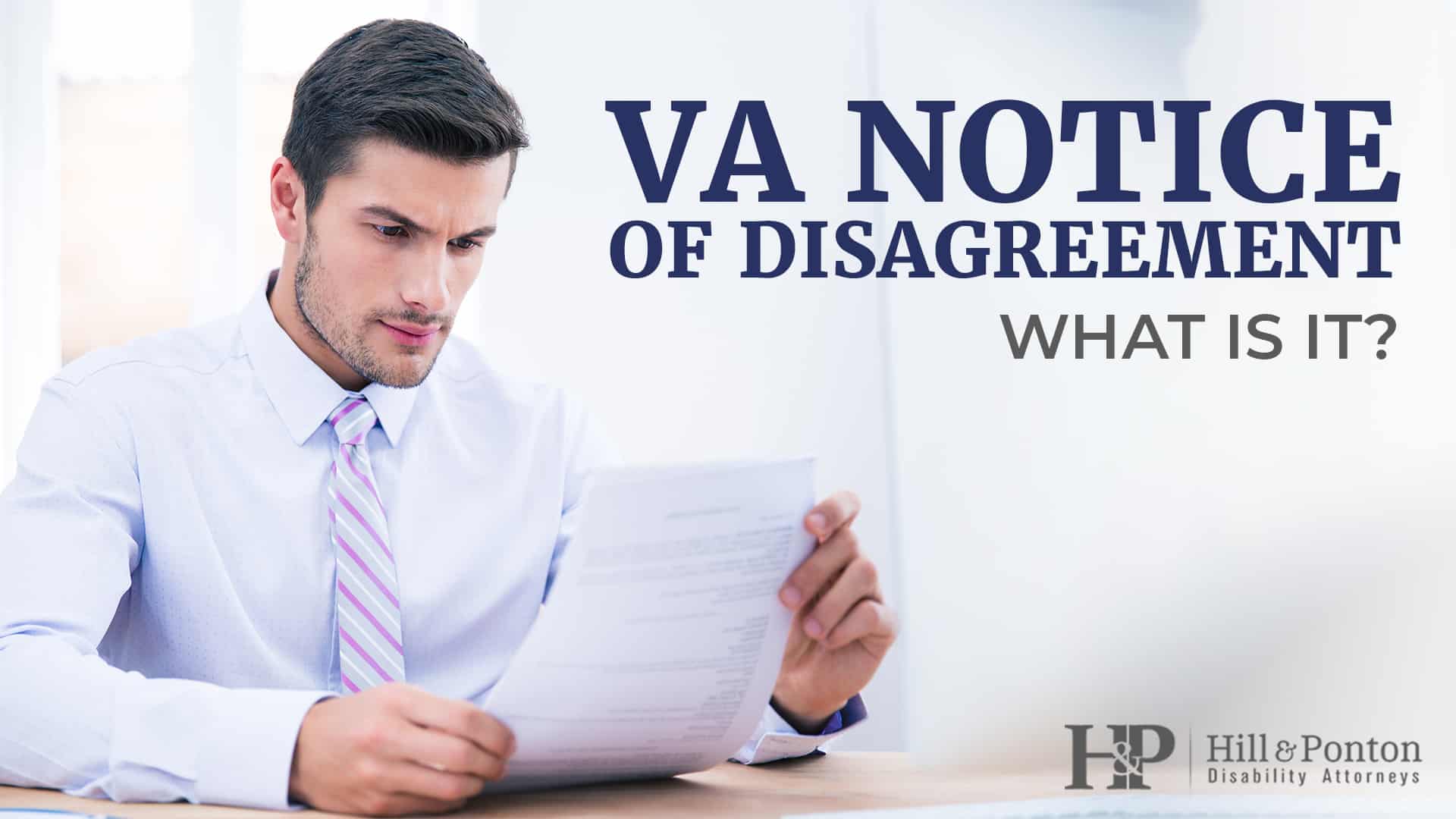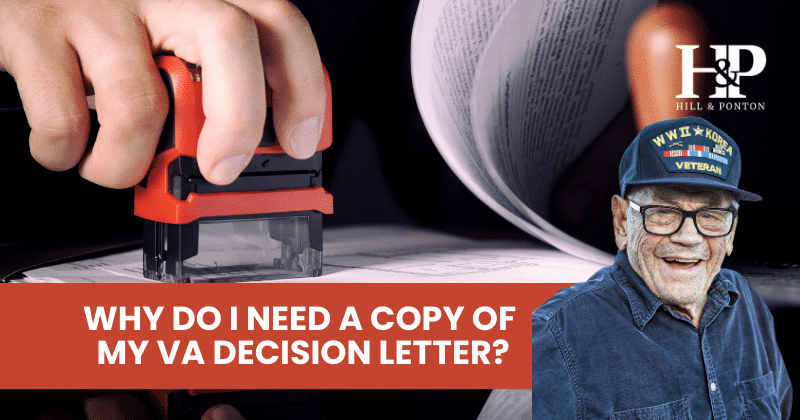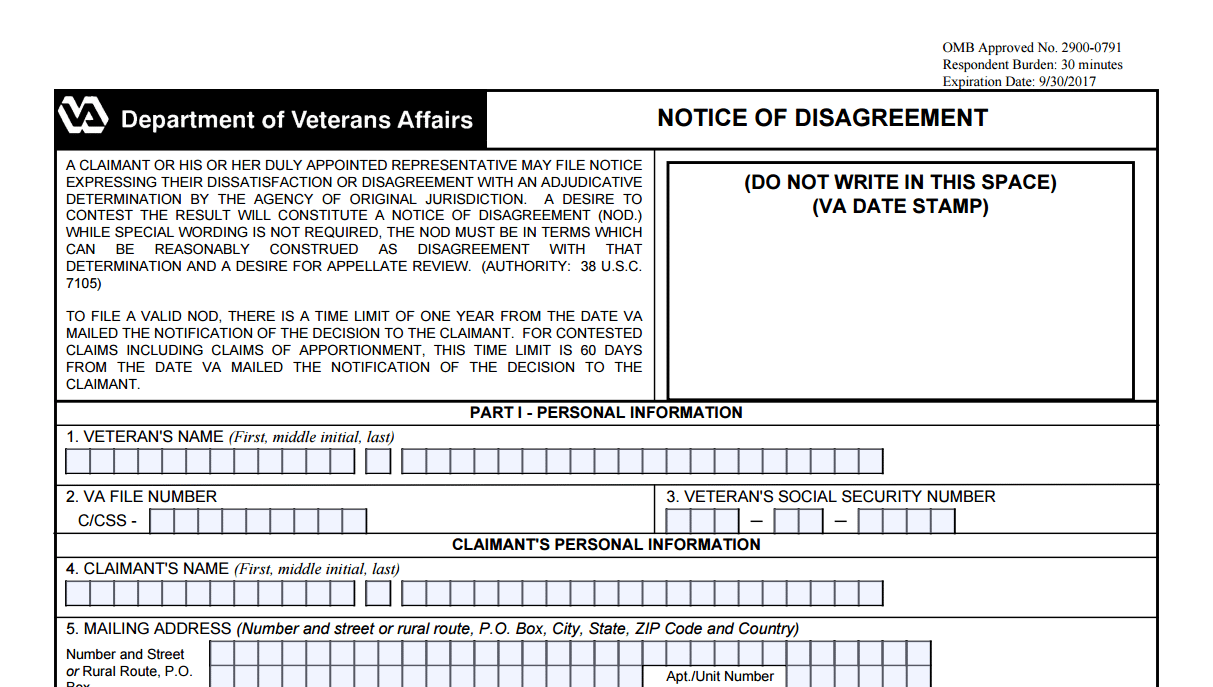You applied for VA benefits, and the VA denied your claim. You received a Rating Decision from the Regional Office of the Department of Veterans Affairs (VA) with these results.
This can be very frustrating, especially after gathering documents and evidence to support your claim. What now? Is this the end? Do you have any recourse? The answer is it is up to you.
There is a section in the rating decision called “references” that provides some basic direction on how to appeal the decision. If you don’t have an advocate who can complete and submit the paperwork on your behalf, don’t be intimidated by all the jargon in the RD letter.
It all comes down to submitting a Notice of Disagreement or NOD” to the VA. The question then becomes…where do you start?
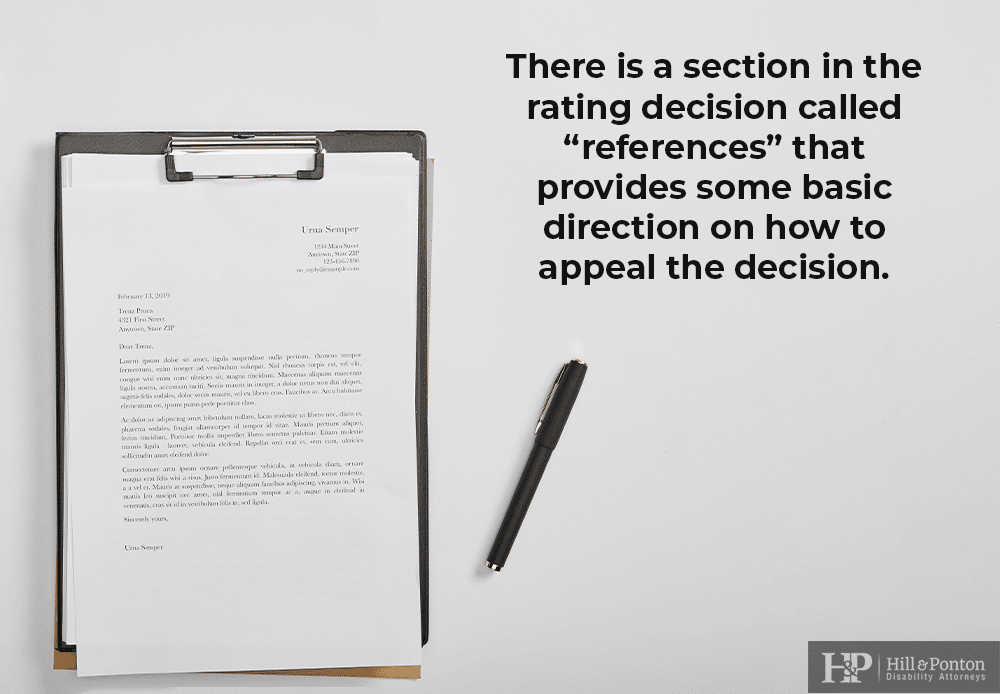
Before discussing the NOD, it’s important to note that this process is part of the legacy appeals system. While the VA doesn’t use this language anymore, thousands of claims are still in the legacy system. If you filed a legacy claim, this information may be helpful in your appeal.
What Is a Notice of Disagreement (NOD)?
The purpose of the NOD is for you to tell the VA that you disagree with their Rating Decision for disability or other compensation. When a claim for benefits is denied, a veteran has one year from the date of the letter notifying him or her of the denial decision to file the NOD.
At one time, the VA had no standardized form for a veteran to file an NOD, so most vets used the general VA Form 21-4138 (Statement in Support of Claim) or simply filed a letter disagreeing with the decision.
Effective February 2013, the VA implemented VA Form 21-0958 (Notice of Disagreement) that is now used for filing a NOD. This is a fillable form that brings uniformity to the process; obviously simplifying the administrative burden for the ROs and “possibly” a more expeditious response.
In order for the NOD to be accepted, it must contain specific wording; regardless of the format used. Basically, there are two specific things that need to be in the NOD:
- You must let the VA know of your dissatisfaction/disagreement with the outcome.
- You need to let them know of your desire to contest/appeal their decision.
When completing the Form 21-0958, it is crucial that not only do you state your disagreement with the decision, but also the date of the decision and a list of the specific issues being appealed.
Also, you need to keep in mind that the VA mandates the NOD be filed within a specific time frame. Again, you have 365 days from the date the VA mailed the notification of the decision. In most cases, if the NOD is not timely filed, you cannot appeal a decision after the one-year period has ended.
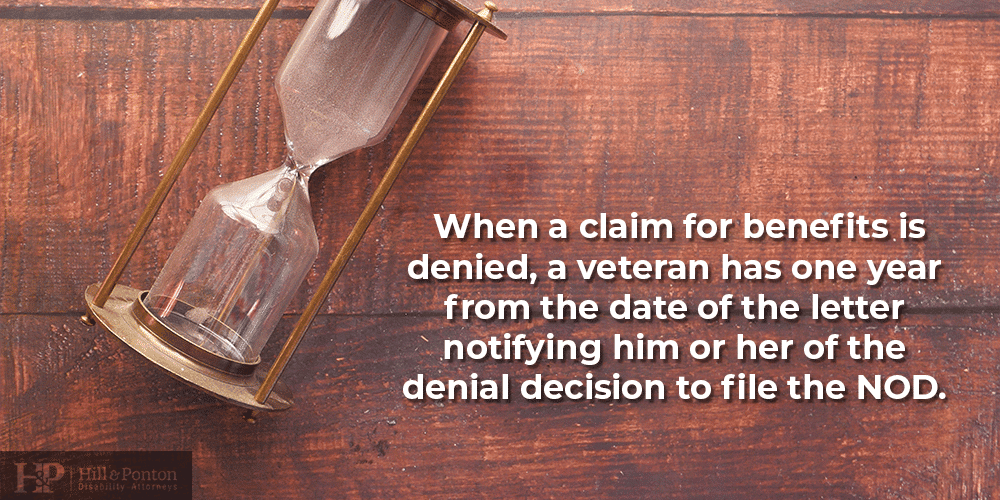
What Happens After You Submit an VA NOD?
After the VA receives an NOD from a veteran, there are a few things that may happen next:
- If you elected the traditional appeal process, the same person who made the first decision will review your case again.
- If you elected the Decision Review Officer (DRO) process, your case will go to a higher level of review within the Regional Office.
- If you elected to have a hearing, a hearing will be scheduled. Once the hearing is held (or if the veteran chooses to cancel the hearing), the DRO will either grant your appeal, issue a Statement of the Case (SOC), or grant some issues and issue an SOC on other issues.
You will eventually receive a letter from the VA with their decision. This letter will either grant your claim or provide you with a Statement of the Case (SOC). The SOC will provide you with the decision(s), and the evidence used to come up with the decision(s).
What Is The Statement of Case (SOC)?
Much like the initial rating decision, the SOC is an explanation of the decision, including a cover letter that gives instructions about the appeal process. Also included in the SOC is a list of the issues being decided in the claim, a summary of evidence, the laws and VA regulations that relate to the claim, and the decision and reasoning behind each issue.
The SOC may include helpful information for preparing for the appeal, but the most important thing to remember about the SOC is that the veteran has 60 days from the date of the SOC cover letter to send in VA Form 9, which is the substantive appeal. Failure to respond to the SOC within 60 days by filing VA Form 9 may result in the appeal being closed and the decision becoming final.
To sum things up, every case is different; thus, a cookie-cutter approach should not be applied to your claim. Be sure to organize all your supporting documentation and include a clear explanation in your NOD.
